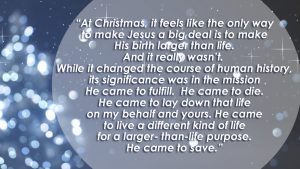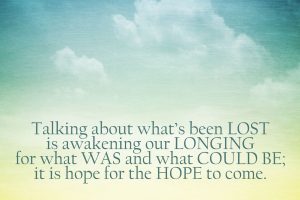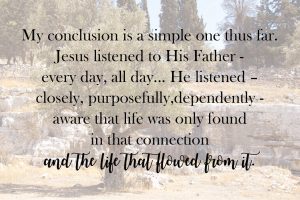make choices
My home sits on two acres. Pines and tulip poplars populate the back of our lot with woods extending behind them another hundred yards. We love the privacy and are very partial to those stately poplars. But we are being encroached; english ivy is marching across the ground and strangling the trees.
I sit on my porch and look down through the woods and I can see the invasion coming. My poplars are in jeopardy. I read that english ivy can grow nine feet in a year. Let’s see, we’ve lived there 20 years which equals 180 feet, both across the ground and up the trees.
I’ve been slow to act. Oh, I’ve talked about it: I should do something. But I don’t act. Sometimes, I talk earnestly: Wow, that ivy grows fast! And still I don’t act. Sometimes, I talk with self-judgement: I’m just being lazy… there it comes. But still, I prevaricate. I don’t act, but the ivy does. It is the nature of ivy to progress—up to nine feet a year. It is acting right now, winding slowly up my poplars, oblivious to my words. If I’ve done the math right, by the time I finish this post it could be 0.02 inches farther.
That may not sound like much, but it amounts to more than my empty words.
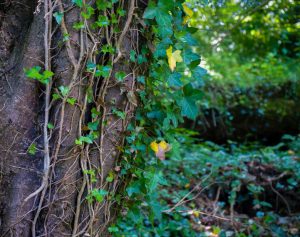
A fraction of action is more than any amount of empty talk. Empty talk multiplied by 20 years equals nothing, but 0.02 inches multiplied by 20 years equals a forest.
It is the nature of ivy to act. You would think, based on this story, that it is not in my nature to act. But you would be wrong. For 20 years, I have forfeited my true nature. That ivy measures (in feet and yards) the extent of my refusal. There are other creeping metrics of my unwillingness to act in my life: an enlarging waistline, a neglected relationship, an eroding sense of gratitude, entangled strands of lust or envy. Bitter roots, indeed.
I see the invasion coming. I talk about it—maybe I talk a lot—but I fail to act.
I said earlier that my true nature is to act. I say this, because God implanted action into the human soul; it’s part of our nature. We may accept that God endowed intellect and emotion into the soul, but often we fail to embrace the greatest and riskiest gift of grace: the gift of free will.
So why don’t I act then? Honestly, because freedom scares me. Freedom implies that my life is my responsibility. Now, I certainly don’t want anyone else to control my life, but the responsibility frightens me. What if I make the wrong choice? What if I fail? What if I succeed? The gift of life is too large, I’m not sure I can handle it. So I forfeit the act of making decisions; I want to be rescued from the burden of choosing so I cede control to others. I make excuses. I follow the crowd. I totally avoid the ivy invasion.
About that ivy invasion, why haven’t I acted? The action is pretty simple: clip and repeat. This is not a difficult intellectual problem. Once I think about it, most of the creeping sin problems in my life aren’t difficult intellectual problems, but fear problems. I am afraid of taking ownership of my life. How sad. It is a refusal of grace.
So, about a month ago, I made a choice. A real choice (meaning action), too. Armed with clippers and a screwdriver (to pry vines off the tree), I waded bravely into the green tangle to save my stately poplars.
The result of that choice has amazed me. I don’t mean the results of the ivy reduction (although I can see vines withering on trees). I mean the result in me. Yes, the work is tedious and slow, but it brings a sense of liberation. I am remembering the basic joy of how it feels to act. I am recovering an essence of my nature. I am not merely empty words; I have been given a life to employ. I truly feel empowered, reminded of God’s gift of the ability to respond (that is, response-ability). Incredibly, He has entrusted me with my life.
Maybe Adam and Eve originally experienced this joy before their fear stole it? Maybe that’s God wants for me too? The liberating experience of acting. What a grace!
Watch out, vines!
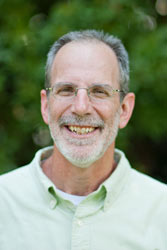
Roger Edwards joined The Barnabas Center in 1991. He works with both individuals and couples, helping people confess their need and embrace their available choices to lead healthier lives. Roger also teaches and leads discussion groups and retreats applying the Gospel to everyday life. He is a licensed clinical mental health counselor (LCMHC), holds a master’s degree in biblical counseling from Grace Theological Seminary in Indiana and a bachelor’s degree in engineering from the University of North Carolina at Charlotte. He is married to Jean; they have seven children and nine grandchildren.

